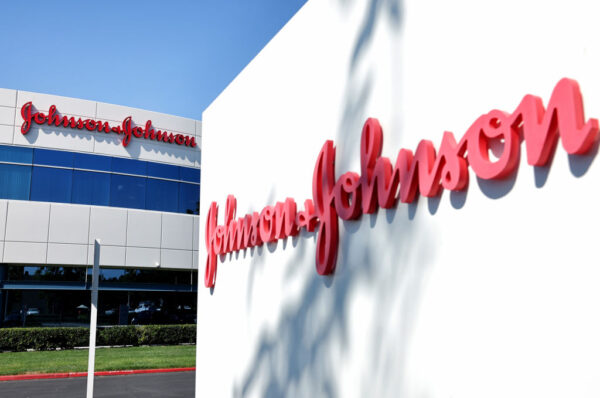
When Johnson & Johnson backed down from its proposal to modify the way it supplies certain drugs under the 340B statute, it hinted litigation could be its next step to effect changes that address what it says is rampant abuse of a program originally intended to make medicines more accessible to underserved patients. The pharmaceutical giant has now taken that legal step.
J&J is suing the Department of Health and Human Services (HHS) and the Health Resources Services Administration (HRSA), which administers the 340B program. In a 51-page complaint filed in federal court on Tuesday, the pharmaceutical giant contends its plan to offer drugs under a rebate plan is legally permissible, and that HRSA’s determination otherwise is unlawful. The pharmaceutical giant is now asking the court to make a legal determination.
[Paragraph updated with HHS response.] In an email, an HHS spokesperson said the department does not comment on pending litigation.

As Healthcare and Biopharma Companies Embrace AI, Insurance Underwriters See Risks and Opportunities
In an interview, Munich Re Specialty Senior Vice President Jim Craig talked about the risk that accompanies innovation and the important role that insurers play.
The 340B program allows eligible hospitals and clinics serving low-income and underinsured patients to purchase outpatient medications at a lower price. When the program was conceived in 1992, a key goal was to ensure that uninsured and underserved patients have access to important medicines. 340B drugs have been procured under a discount model. The healthcare entities covered under the statute purchase medications at discounts that can amount to 50% or more off of list prices.
J&J argues that the 340B program has been overtaken by for-profit entities, including pharmacy chains and pharmacy benefit managers “who have exploited the program for profit.” Though the 340B program was implemented to improve access to medicine, J&J argues that covered entities have turned the program into a source of revenue, making money by getting full insurance reimbursement for drugs they purchased at discounted 340B prices. The pharma company also flagged duplicate discounts — getting the 340B price on the same drug purchase that also receives a Medicaid rebate.
“Put simply, what was intended as a buy-low/sell-low program for vulnerable patients has turned into a buy-low/sell-high commercial business opportunity disconnected from its public health mission,” J&J said in the complaint. “This is the opposite of how charity care should be funded: the 340B Program creates incentives to provide services to insured patients rather than those vulnerable populations most in need of affordable care.”
To support its claims, J&J points to reports from government watchdog groups that found covered entities are profiting from reduced-price medications but failing to pass on those discounts to patients. The drugmaker also notes that HRSA audits have found many covered entities were non-compliant with the 340B program. J&J said additional audits it has sought to uncover more abuse have been stonewalled.
Disagreement over the 340B program has been simmering for years. Matters came to a head more recently when J&J sent an August letter notifying 340B participants that in mid-October, the pharma giant would shift from discounts to rebates for two drugs, the blood thinner Xarelto and the plaque psoriasis medicine Stelara. Under this rebate plan, hospitals would need to purchase these drugs at full price and then later submit data to the company in order to receive a rebate reflecting the lower 340B price.
The rebate proposal sparked opposition from hospital groups, lawmakers, and government agencies. In letters to J&J, HRSA Administrator Carole Johnson stated that under the 340B statute, the J&J rebate plan would require approval from the Secretary of HHS. Johnson’s Sept. 27 letter noted that the company had not requested such approval. That letter also warned J&J that proceeding with the rebate plan would lead to termination of the company’s pharmaceutical pricing agreement and also raise the possibility of monetary penalties.
In October, J&J halted its plan to implement rebates, saying HRSA’s threat to terminate the company’s participation in the 340B program would only hurt patients. But J&J did not back down from its position that changes to the program are necessary. In its suit, J&J argues it is well within its rights to offer a rebate program. The company says the statute states HRSA may direct a company to a particular pricing mechanism only through that company’s pharmaceutical pricing agreement with the agency. Because J&J’s agreement contains no such direction or requirement, the company says it has full discretion to choose the pricing mechanism, and the mechanism it is choosing is rebates.
J&J contends changing to a rebate model would provide transparency, mitigating the duplicate discounts that are violations of the 340B statute. J&J also contends rebates are the only mechanism it is aware of that would enable the company to meet its obligations under the Inflation Reduction Act (IRA). This law requires a drugmaker to offer the covered entities either the 340B ceiling price or the act’s maximum fair price — whichever is lower. J&J says a rebate model would enable the company to comply with the IRA’s prohibition of duplicate discounts.
J&J filed the suit in the U.S. District Court for the District of Columbia. The case number is 1:24-cv-3188.
Photo: Mario Tama/Getty Images








